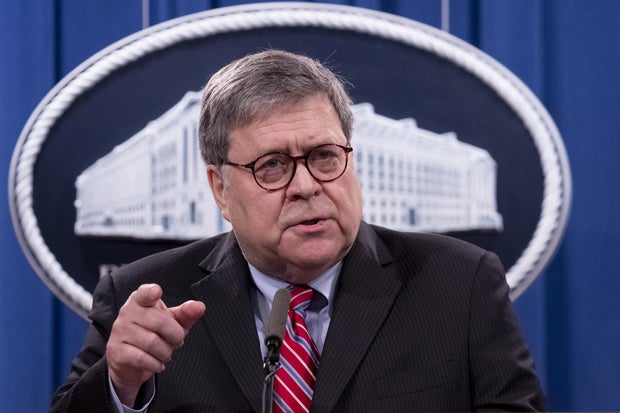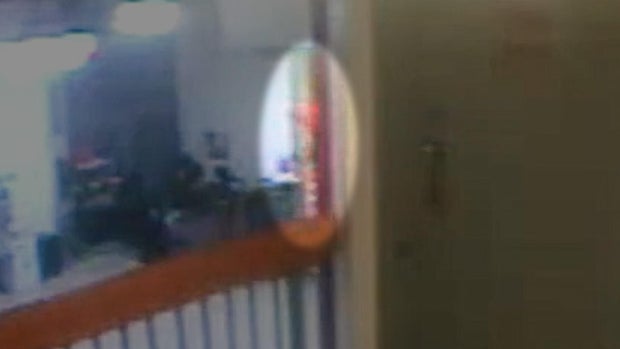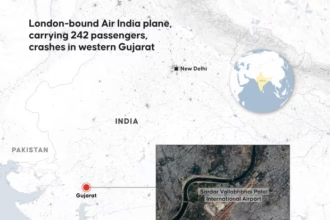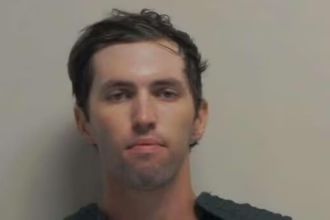In the hours after convicted sex offender Jeffrey Epstein died in a Manhattan detention cell, then-U.S. Attorney General William Barr pledged to intervene personally to lead the investigation into Epstein’s death.
Among the first to arrive at the Metropolitan Correctional Center soon after Epstein’s death in August 2019 were members of Barr’s senior staff. The visit to the federal detention center by senior members of the attorney general’s staff was highly unusual, a source who was there at the time and witnessed the visit told CBS News. But so was the death in custody of such a controversial figure.
One source didn’t recall ever seeing members of the attorney general’s senior staff investigate an inmate death in more than 20 years. Another source, involved in the investigation, said such senior visits were rare, and if they occurred, usually pertained to promoting correctional programs, not investigating inmate deaths.
Barr’s involvement extended to a personal review of the approximately 11 hours of jail surveillance footage from the night of Epstein’s death. He said in an interview with The Associated Press three months later that it showed no one had entered the area where Epstein was housed, and he concurred with the conclusion of the medical examiner: Epstein had died by suicide.
Last month, after the FBI made that video public, an analysis by CBS News identified inconsistencies between Barr’s description of the video and what it actually showed — including whether it really proves no one else entered the cell block.
Now, Barr is scheduled to appear on Monday on Capitol Hill, where he will be questioned behind closed doors by members of Congress conducting a review of the Epstein matter.
Sources familiar with the oversight committee’s plans tell CBS News they will be asking questions about Barr’s involvement in the death investigation.
Michael Reynolds/EPA/Bloomberg/Getty Images
The deposition of Barr, who served two Republican presidents as U.S. attorney general, comes as Epstein’s 2019 death in federal custody has come under renewed, intense public and governmental scrutiny. House Committee on Oversight and Government Reform Chairman James Comer, a Republican from Kentucky, issued several deposition subpoenas in August, including to Barr, former President Bill Clinton, former U.S. Attorney General Eric Holder and former FBI Director James Comey.
Barr, a veteran of the George H.W. Bush administration who was serving his second stint as head of the Justice Department under President Trump at the time, said he was “appalled” when Epstein was found dead on Aug. 10, 2019, in his cell in the Metropolitan Correctional Center.
Epstein was being held at the now temporarily shuttered federal detention center after being arrested on sex trafficking charges that could have carried a life sentence. His arrest came after years of questions surrounding an earlier controversial prosecutorial deal in Florida where he pleaded to state prostitution charges and a federal felony case was dropped.
Scrutiny around that deal, and his subsequent death, has fueled years of suspicions and conspiracy theories. The furor also has enveloped Epstein’s vast network of powerful former friends, including Mr. Trump and former President Clinton, who have disavowed him and have not been accused of wrongdoing.
Campaign promises to “declassify” files related to Epstein, made by Mr. Trump and his surrogates in 2024, have led to months of political headaches for the White House.
The release last month of what the Justice Department called “raw” surveillance video from near Epstein’s cell block, rather than settling questions about the night he died, raised new ones. The analysis by CBS News flagged multiple inconsistencies between the video and the 2023 report released by the Justice Department’s Inspector General on Epstein’s death.
As Congress steps up its inquiry, Barr is the first person scheduled to be deposed by the committee.
Barr has acknowledged what he called “a perfect storm of screw-ups” at the jail, but said his “personal review” of surveillance footage supported the conclusion that Epstein had died by suicide.
As attorney general, Barr faced calls to recuse himself from Epstein’s criminal case because he had previously worked for a law firm, Kirkland and Ellis, that had represented Epstein. (Their paths also indirectly crossed decades earlier, in the early 1970s, when Epstein was hired to teach at an elite private school in New York City where Barr’s father was the headmaster.)
Here is a look at some unanswered questions Barr may be asked based on a review of the 2023 DOJ inspector general’s report, documents released by the Bureau of Prisons, and the surveillance video.
Questions for Barr about Jeffrey Epstein death investigation
Did the video Barr reviewed from MCC have a missing minute?
Before the supposedly “raw” surveillance video was released last month, showing about 11 hours of footage from the night Epstein died, Attorney General Pam Bondi told reporters that one minute right before midnight was missing was because “every night is reset, so every night should have the same missing minute,” from 11:59 p.m. to midnight.
That was later disputed by a government source familiar with the investigation in an interview with CBS News in July. Another high-level government source said the FBI, the Bureau of Prisons and the Department of Justice’s Office of Inspector General are in possession of full unedited copies of the video, and those copies do not have a missing minute. Why the FBI released the video with that small segment missing is unclear, and it is not known if anything notable occurred during that minute.
Does Barr still believe that “between the time Epstein was locked in his cell at 7:49 p.m. on the night of August 9 and the time he was discovered the next morning at 6:30 a.m., no one entered his tier”?
Barr made that statement in 2019, but the CBS News video analysis indicates the view from the jail camera does not conclusively prove no one entered Epstein’s cell block. A staircase leading to Epstein’s cell block is almost entirely out of view from the camera, with just a small sliver of stairs visible. From the video released publicly, experts told CBS News it is impossible to determine whether anyone entered the jail unit and accessed the staircase without being captured on the recording.
Just before 10:40 p.m., the video shows a glimpse of an orange shape moving up the stairs leading to Epstein’s tier. The inspector general’s report said that it was a jail staffer bringing orange linens or inmate clothing up the stairs. Some video forensic experts who reviewed that footage at the request of CBS News said they were skeptical about that interpretation. They suggested the shape could be a person dressed in an orange prison jumpsuit climbing the stairs. Inmates were typically confined to their cells late at night.
U.S. Bureau of Prisons
What did the DOJ do to investigate theories other than suicide?
No evidence has surfaced suggesting that anyone else was involved in Epstein’s death. He had been placed on suicide watch after an apparent attempt to hang himself a month before, and remained under heightened observation. However, there do remain significant unanswered questions about his death, some of which were raised in a “60 Minutes” report in 2020 looking at the medical evidence. Those included questions relating to the autopsy.
A private autopsy commissioned by Epstein’s family, conducted alongside the official examination by the medical examiner, raised concerns about the angle of the ligature marks on his neck and the presence of broken neck bones, findings that suggested a level of force greater than typically associated with a hanging. The medical examiner disputed that, saying such fractures can occur in suicides.











